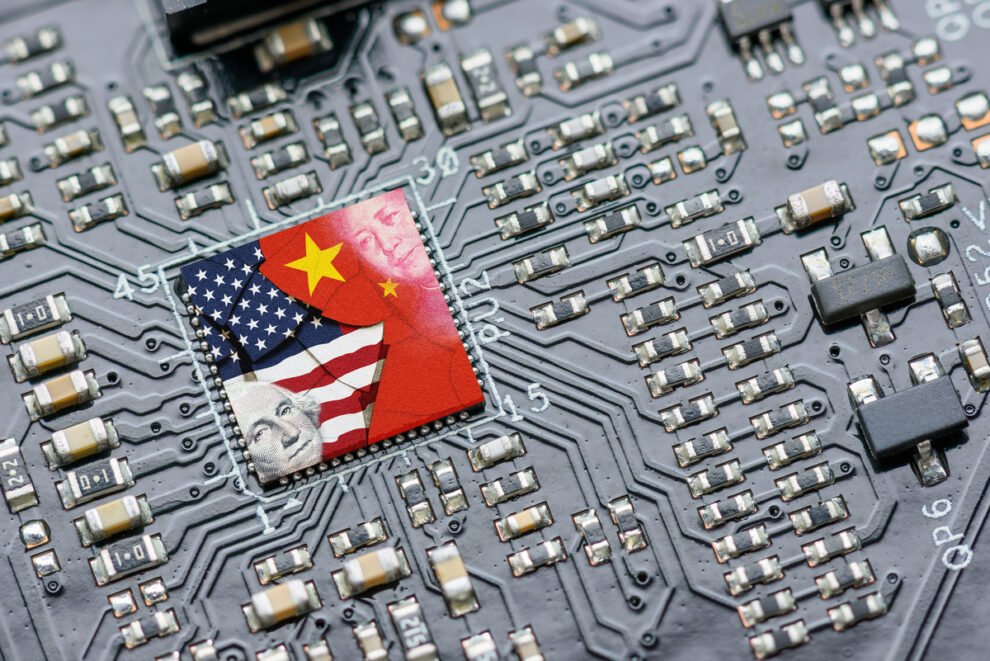Rotating out of Nvidia is becoming popular among billionaires.
David Tepper, the CEO of Appaloosa Management, is one of the best-known hedge fund managers working today.
Tepper has a net worth of $21.3 billion, making him one of the wealthiest people in the world. He’s known for, among other things, taking a contrarian approach to investing, zigging while others are zagging.
Tepper’s latest moves are an excellent example of that philosophy. In the second quarter, Appaloosa Management dumped shares of Nvidia (NVDA -2.13%), arguably the most popular stock on the market, and piled into some of the most beaten-down, unloved stocks available. Take a closer look.

Image source: Getty Images.
Out with Nvidia
Tepper’s fund dumped 3.73 million shares of Nvidia, or roughly $450 million worth of the top artificial intelligence (AI) stock, in Q2. That wasn’t quite all of Appaloosa’s stake. But it was more than 84% of it, leaving the fund with just 690,000 shares, representing roughly $90 million worth of the stock.
The Appaloosa boss hasn’t directly commented on selling Nvidia, but he’s one of several billionaire hedge fund managers to do so in Q2. Many seem to believe that the so-called easy money has been made with Nvidia. Billionaire Stanley Druckenmiller also sold the stock recently, saying that the market now recognizes what he recognized at the start of the AI boom.
For Tepper, the Q2 sale continued a pattern. He dumped 3.48 million shares of Nvidia in the first quarter, even as the stock surged over that period.
Appaloosa also sold a number of other chip stocks in Q2, indicating a broader rotation out of the sector. Among those it sold were Intel and Advanced Micro Devices. It also trimmed its position in “AI stocks” like Amazon, Oracle, Microsoft, and Meta Platforms.
However, what Tepper was buying instead was even more surprising.
In with China stocks
China stocks have been in trouble for the last five years, falling sharply from their pandemic peak. A crackdown on the tech sector by Beijing and a weak recovery post-COVID have combined to make the sector a laggard.
In fact, as the chart below shows, the iShares MSCI China ETF is down 12% over the last five years, getting trounced by the S&P 500, which has nearly doubled in that time.
However, Appaloosa seems to smell an opportunity in China, as the fund bought a number of Chinese stocks in Q2.
Appaloosa added more than 1 million shares of the Kraneshares CSI China Internet ETF (KWEB 3.92%), which counts Tencent and Alibaba as its top two holdings.
The fund also added more than 660,000 shares of leading e-commerce stock JD.com, 565,000 shares of the iShares China Large-Cap ETF (NYSEMKT: FXI), and 380,000 shares of KE Holdings, a Chinese real estate services company.
Though Appaloosa actually trimmed its stake in Alibaba, that Chinese e-commerce stock remained his top holding, making up 12.2% of the Appaloosa portfolio.
The fund first bought shares of Alibaba in Q2 2022. He’s acquired the other Chinese stocks more recently, mostly within the last year.
Why Tepper is buying China
Tepper hasn’t explained his bullishness on China, but he likely thinks the sector is oversold and due for a recovery.
Anyone with a bullish bet on China got some good news on Tuesday when Chinese stocks soared on surprise interest rate cuts, the government’s biggest effort to stimulate the economy since the pandemic.
Indeed, Chinese stocks jumped on the news. The iShares MSCI China ETF was up 9% in afternoon trading, showing perhaps greater upside potential in the sector.
Should you follow Tepper’s Appaloosa into China?
The Chinese economy is still generally weak, but the rate cuts could be a sign that the government plans to do more to boost that economy. Even so, most Chinese stocks, like Alibaba and JD.com, have put up underwhelming growth numbers in recent quarters, which is why the stocks have generally lagged.
Tepper and his team at Appaloosa seem to believe that those stocks have hit rock bottom, and any good news would prompt a turnaround. That theory seems reasonable, but investors have been saying that for years, and China has continued to struggle.
Rate cuts notwithstanding, investors still seem better off exercising cautiousness in China. Beijing is unpredictable, the economy is lagging, and new chip export restrictions from the U.S. and others could further impair its recovery.
Randi Zuckerberg, a former director of market development and spokeswoman for Facebook and sister to Meta Platforms CEO Mark Zuckerberg, is a member of The Motley Fool’s board of directors. John Mackey, former CEO of Whole Foods Market, an Amazon subsidiary, is a member of The Motley Fool’s board of directors. Jeremy Bowman has positions in Amazon and Meta Platforms. The Motley Fool has positions in and recommends Advanced Micro Devices, Amazon, JD.com, Meta Platforms, Microsoft, and Oracle. The Motley Fool recommends Alibaba Group and Intel and recommends the following options: long January 2026 $395 calls on Microsoft, short January 2026 $405 calls on Microsoft, and short November 2024 $24 calls on Intel. The Motley Fool has a disclosure policy.













